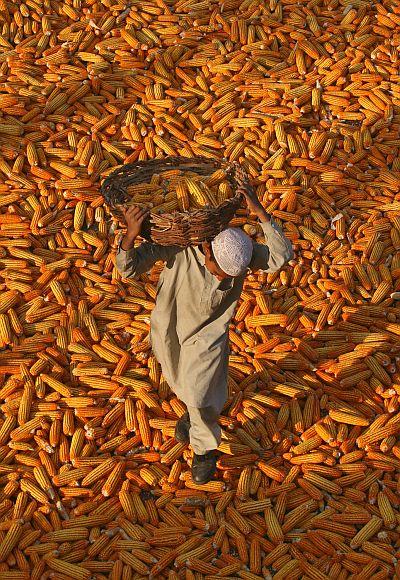
If the food security bill is implemented properly it will benefit the country by raising the poor households’ expenditure of education, health, and nutritious food, according to a research report from CRISIL.
Effective implementation will lower spending on foodgrains by below poverty line (BPL) households, and free up resources for spending on other goods and services, in particular health, education, and nutritious food.
…
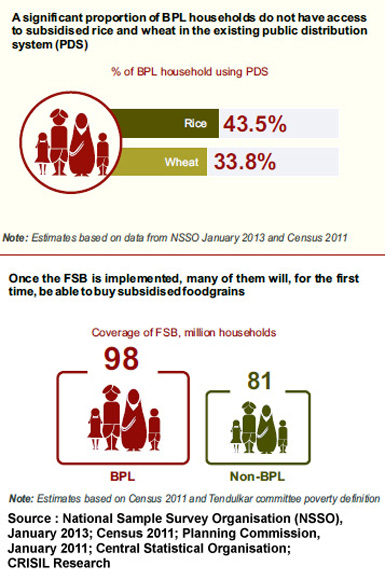
CRISIL Research's estimates suggest that the Food Security Bill (FSB) could generate additional savings of around Rs 4,400 this year for each BPL household, if they start to purchase subsidised food.
This savings equals around 8 per cent and 5 per cent of the annual expenditure of a rural and urban household, respectively.
For rural households the savings amount exceeds their current annual medical and educational spends.
…

Higher disposable income would also allow BPL households to spend more on protein rich food, thereby improving their nutritional intake.
“While the benefits of the Bill could go well beyond just the provision of food, the success of the scheme and its welfare impact lies in identifying the poor and making sure that they are able to avail the food subsidy,” the report states.
…
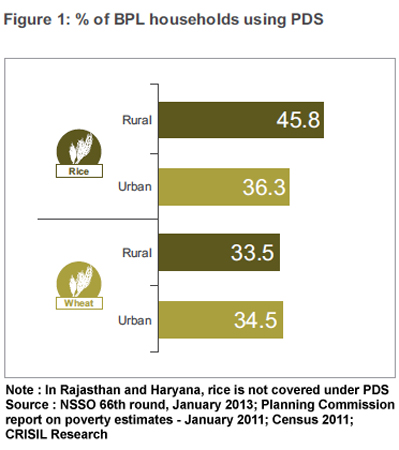
At present, while all BPL households are entitled to purchase subsidised foodgrains from PDS, a significant proportion of them are being denied their entitlement.
For example, only around 16 per cent of rural BPL households in Bihar purchased rice under PDS in 2009-10. In Jharkhand and Uttar Pradesh less than 35 per cent of rural BPL households have access to rice from PDS.
Similarly, in Rajasthan only 27 per cent of rural BPL households have access to wheat from PDS.
…

At an all-India level, less than half (around 43.5 per cent) of all BPL households purchase rice under PDS and only around one third of them purchase subsidised wheat.
If the government carries out identification exercise correctly, several BPL households, which currently do not have access to the PDS, will be given some form of identity proof that will, for the first time, make them eligible for purchasing foodgrains at the subsidised rate from the PDS.
…
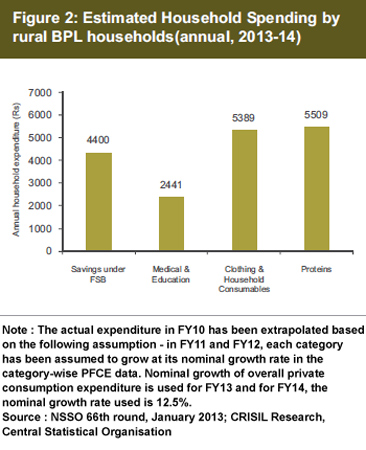
Purchasing subsidised foodgrains from PDS will free up part of their earnings that is currently being spent on buying foodgrains at higher prices from the market.
However, the key question from a broader perspective that may have implications for the corporate sector and rural consumption is that how much would be the income benefit per household.
…

Items likely to see a boost in consumption
As the food security bill will provide households with additional disposable income, households will in effect move up the income bracket.
In the case of rural households, spending on education and medical expenditure will increase as income increases.
If this happens, the FSB will indirectly help increase investments by households in their future.
…
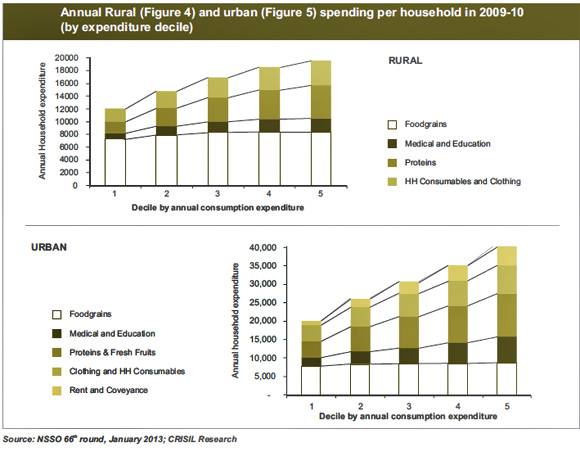
The demand for nutritious food items, especially milk and milk products, egg, fish and meat also increases sharply with household income.
Spending on clothing and household consumables such as toiletries (which can improve health outcomes) is also expected to rise once the FSB is implemented.
In urban areas, the poor households are likely to increase their expenditure on protein-rich food and fresh fruits as their income increases.
…
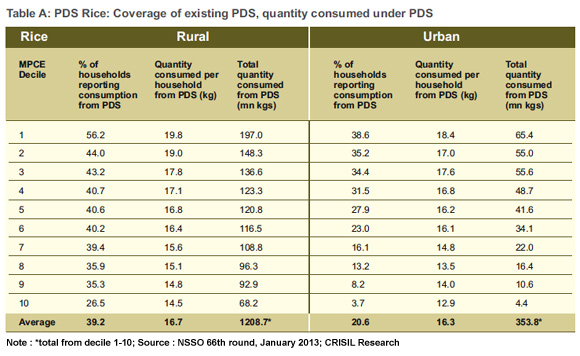
Their spending on medical expenses and education would rise even more sharply than that of rural consumers.
Among the urban poor, spending on conveyance and rent also rises with the increase in income.
In addition to guaranteeing food security to poor households, the food security bill could serve as a means to improve their discretionary spending and thereby improve their quality of life.